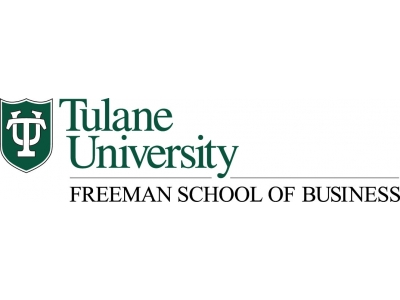a. Univ.-Prof. Dr. Michael Hauser
Professor - aktiv
Universität
Wirtschaftsuniversität Wien
Wirtschaftsuniversität Wien
Fachbereich
Department für Finance, Accounting and Statistics
Department für Finance, Accounting and Statistics
Arbeitsbereiche
Angewandte Statistik und Datenverarbeitung
Angewandte Statistik und Datenverarbeitung
Forschungsbereiche
Anbauplanung (Landwirtschaft)
Modellieren von Finanzreihen
Ökonometrie
Prognose
Zeitreihenanalyse
Anbauplanung (Landwirtschaft)
Modellieren von Finanzreihen
Ökonometrie
Prognose
Zeitreihenanalyse
Land
Österreich
Österreich
Ort / PLZ
1020 Wien
1020 Wien
Strasse
Welthandelsplatz 1
Welthandelsplatz 1
Telefon
0043-1-31336-4759
0043-1-31336-4759
Sekretariat
0043-1-31336-4757
0043-1-31336-4757
FAX
0043-1-31336-738
0043-1-31336-738
Veröffentlichungen
M. A. Hauser
Inflation, Arbeitslosigkeit, optimale Politik und die neue klassische Makroökonomik. Eine empirische Analyse für Österreich und eine Kritik
Campus Verlag, Campus Forschung Band 599, Frankfurt/New York (1989)
(in German. Title in English: Inflation, Unemployment, Optimal Policy and The New Classical Economics)
Journals:
M. A. Hauser
Dynamic Nonlinear Econometric Models - Asymptotic Theory
by B.M. Pötscher and I.R. Prucha, 1997, Springer: Book Review, Statistical Papers 42, 134 (2001)
M. A. Hauser and R. M. Kunst
Forecasting High-frequency Financial Data with the ARFIMA-ARCH Model
Journal of Forecasting 20, 501-518 (2001)
M. A. Hauser
Maximum likelihood estimators for ARFIMA models: A Monte Carlo Study
Journal of Statistical Planning and Inference 80, 229-255 (1999)
Michael A. Hauser, Benedikt M. Pötscher and Erhard Reschenhofer
Measuring Persistence in Aggregate Output:
ARMA Models, Fractionally Integrated ARMA Models and Nonparametric Procedures
Empirical Economics 24, 243-269 (1999)
M. A. Hauser and R. M. Kunst
Fractionally Integrated Models With ARCH Errors - With an Application to the 1-month Euromarket Interest Rate
Review of Quantitative Finance and Accounting 10, 95-113 (1998)
M. A. Hauser
Semiparametric and Nonparametric Testing for Long Memory: A Monte Carlo Study
Empirical Economics 22, 247-271 (1997)
M. A. Hauser and E. Reschenhofer
Estimation of the fractionally differencing parameter with the R/S method
Computational Statistics and Data Analysis 20, 569-579 (1995)
M. A. Hauser, B. M. Pötscher and E. Reschenhofer
On Gagnon's Criticism of ARMA Models for Real GNP Growth
Economic Notes 23, 124-128 (1994)
M. A. Hauser, R. M. Kunst and E. Reschenhofer
Modelling exchange rates: long-run dependence versus conditional heteroscedasticity
Applied Financial Economics 4, 233-239 (1994)
Conference Proceedings:
M. A. Hauser, W. Hörmann, R. M. Kunst and J. Lenneis
A note on generation, estimation and prediction of stationary processes
in: R. Dutter and W. Grossmann (eds.), COMPSTAT, Physica Verlag, Heidelberg, 323-329 (1994)
Working Papers:
M. A. Hauser and R. M. Kunst
Fractionally Integrated Models With ARCH Errors - With an Application to a Swiss Interest Rate
Arbeitspapier Nr. 9402, Johannes Kepler Universität Linz, Department of Economics (1994)
M. A. Hauser and R. M. Kunst
Fractionally Integrated Models With ARCH Errors
Forschungsbericht No. 322, Institute for Advanced Studies, Vienna (1993)
M. A. Hauser, B. M. Pötscher and E. Reschenhofer
Measuring persistence in aggregate output: ARMA models, fractionally integrated models and nonparametric procedures
Technical Report, TC-SMC 117, Department of Statistics, University of Vienna (1992)
M. A. Hauser, R. M. Kunst and E. Reschenhofer
Modelling exchange rates: long-run dependence versus conditional heteroscedasticity
Forschungsbericht No. 306, Institute for Advanced Studies, Vienna (1992)
Further Research Papers:
M. A. Hauser
A partitioning approach to the specification of large VAR models: With an application to the DAX30 series
Department of Statistics, Vienna University of Economics and Business Administration (2002)
M. A. Hauser and W. Hörmann
The Generation of Stationary Gaussian Time Series
Department of Statistics, University of Economics and Business Administration, Vienna (1997)
M. A. Hauser
Long Range Dependence in International Output Series: A Reexamination
Department of Statistics, University of Economics and Business Administration, Vienna,
presented at the World Congress of the Econometric Society, Tokyo (1995)
M. A. Hauser
A note on Sowell's modelling long-run behavior with the fractional ARIMA model
Department of Statistics, University of Economics and Business Administration, Vienna (1995)
M. A. Hauser and R. M. Kunst
Forecasting the ARFIMA/ARCH Model
Department of Statistics, University of Economics and Business Administration, and
Institute for Advanced Studies, Vienna (1994)
M. A. Hauser and F. Müller
Zur Modellierung von Investitionen
Institut für Wirtschaftswissenschaften, Universität Wien, Projektbericht zum Proket No. 2155 des Jubiläumsfond der Österreichischen Nationalbank (1984)
Other Material Presented at Conferences:
The Nile River Data: Long Range Dependence or a Shift in The Mean?
Biometrisches Kolloquium, Wiener Biometrische Sektion der Internationalen Biometrischen Gesellschaft, Wien, 15. Dezember 1993
Long Range Dependence in Economic Series: Aggregate Output, Stock Prices and Exchange Rates
IFAC (International Federation of Automatic Control) Workshop on Economic Time Series Analysis and Systems Identification, ESI'92, Vienna, July 1-3, 1992
Long Memory in Wiener Wertpapierkursen
1.Workshop der Austrian Working Group on Banking and Finance, Graz, 3.-4.April 1992
Computerfarming - ein Entscheidungsmodell für die zukünftige landwirtschaftliche Betriebsoptimierung
Zentrale-Ein- und Verkaufsgenossenschaft landwirtschaftlicher Betriebe, Großenzersdorf, 25.Jänner 1991
Strategisches Entscheidungsmodell in der Pflanzenproduktion
Österreichische Gesellschaft für Operations Research, Wr. Neustadt, 7. Dezember 1989
The Existence of Weak and Strong Neutrality of Aggregate Policy in Macro Models with Rational Expectations
1988 Australian Meeting of the Econometric Society, Canberra, August 28-31, 1988
Politique de la demand optimisant la perte de bien-etre par inflation et chomage: le cas de l'economie autrichienne
Journees Internationales d'Etude Analyse Structurelle des Modeles Econometriques, Association d'Econometrie Appliquee, Rotterdam, December 1982 Nutzungshinweise: Jede natürliche Person darf sich nur mit einer E-Mail Adresse bei WiWi-Online registrieren lassen. Die Nutzung der Daten die WiWi-Online bereitstellt ist nur für den privaten Gebrauch bestimmt - eine gewerbliche Nutzung ist verboten. Eine automatisierte Nutzung von WiWi-Online und dessen Inhalte, z.B. durch Offline-Browser, Download-Manager oder Webseiten etc. ist ausdrücklich strengstens untersagt. Zuwiderhandlungen werden straf- und zivilrechtlich verfolgt.







